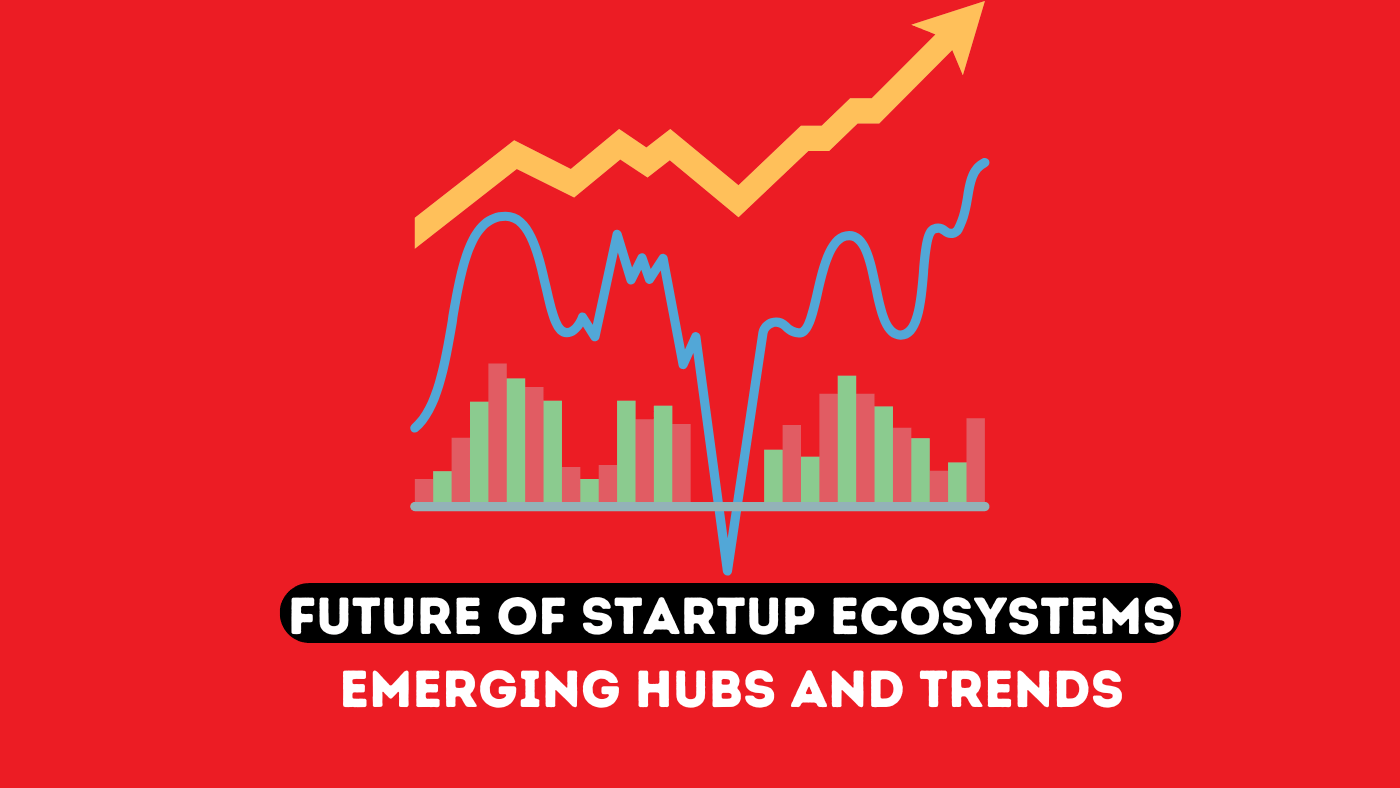Quick Summary
⭐ Global Diversification of Startup Hubs: The traditional dominance of Silicon Valley is being challenged by emerging global hubs like Singapore, Tel Aviv, and Bangalore, which offer diverse market access, talent pools, and government support, fostering a more distributed and interconnected ecosystem.
⭐ Emphasis on Inclusive and Impact-Driven Innovation: The future of startup ecosystems prioritizes diversity, inclusivity, and sustainability, with a growing focus on impact-driven solutions that address global challenges like climate change and healthcare, attracting socially conscious investors and consumers.
⭐ Adaptation to Digital Connectivity and Decentralization: Trends like remote work, distributed teams, and blockchain technology are reshaping startup operations, requiring entrepreneurs to embrace digital tools, prioritize talent development, and foster cross-border collaborations to thrive in a decentralized and globally connected environment.
The future of startup ecosystems holds exciting prospects, reshaping how entrepreneurs connect, collaborate, and thrive. This article explores the emerging hubs and trends that are poised to define the next era of startup development.
The Evolution of Startup Ecosystems
Startup ecosystems are more than just physical locations. They are vibrant communities where entrepreneurs, investors, and support networks converge to foster innovation. Traditionally, hubs like Silicon Valley, London, and Berlin have been synonymous with startup success. However, a new wave of emerging ecosystems is challenging the status quo, offering diverse opportunities for startups worldwide.
1. Rise of Global Hubs: Beyond Silicon Valley
While Silicon Valley remains a powerhouse of innovation, the rise of global startup hubs is reshaping the narrative. Cities like Singapore, Tel Aviv, and Bangalore are gaining prominence, offering unique advantages such as access to diverse markets, talent pools, and government support. These hubs leverage their strategic locations to connect startups with global opportunities, reducing the dependence on a single geographic center.
2. Focus on Inclusive Innovation: The Role of Diversity
The future of startup ecosystems emphasizes the importance of diversity and inclusivity. Emerging hubs are recognizing the value of diverse perspectives, talents, and experiences in driving innovation. By fostering inclusive environments, cities like Lagos, Seoul, and Nairobi are creating ecosystems that cater to a broader range of entrepreneurs, ensuring that innovation is not limited by gender, ethnicity, or socioeconomic background.
Trends Shaping the Future of Startup Ecosystems
Beyond geographical shifts, several trends are reshaping the dynamics of startup ecosystems. Entrepreneurs and investors alike need to be attuned to these trends to navigate the evolving landscape successfully.
1. Remote Work and Distributed Teams
The global shift towards remote work has transformed the traditional notion of startup hubs. Entrepreneurs can now build and scale their startups with distributed teams, leveraging talent from around the world. This trend democratizes access to opportunities, allowing startups to thrive regardless of their physical location.
2. Sustainability as a Core Value
Sustainability is no longer a mere buzzword; it’s becoming a fundamental aspect of startup ecosystems. Emerging hubs are focusing on sustainable practices, both in terms of business models and environmental impact. Startups that prioritize sustainability not only attract socially conscious consumers but also align themselves with the values of investors and policymakers.
3. Impact-driven Innovation
The future of startup ecosystems is witnessing a surge in impact-driven innovation. Startups are increasingly focusing on solutions that address pressing global challenges, from healthcare and education to climate change. Hubs that foster a culture of impact-driven entrepreneurship are gaining attention, with investors actively seeking startups that balance profit with positive social and environmental outcomes.
4. Blockchain and Decentralization
Blockchain technology is disrupting traditional industries and reshaping how startups operate. Cities like Zurich, Berlin, and Singapore are emerging as hubs for blockchain startups, exploring applications in finance, supply chain, and healthcare. The decentralization ethos of blockchain aligns with the broader trend of distributed ecosystems, offering new possibilities for innovation.
Navigating the Future: Opportunities and Challenges
As startup ecosystems evolve, opportunities abound, but challenges also emerge. Entrepreneurs navigating this dynamic landscape should consider the following strategies:
1. Embrace Digital Connectivity
In the future of startup ecosystems, physical proximity is no longer the sole determinant of success. Entrepreneurs should leverage digital connectivity to build global networks, connect with mentors, and access resources. Virtual events, online accelerators, and remote collaboration tools are becoming integral to the startup journey.
2. Prioritize Talent and Skills Development
The success of any startup ecosystem hinges on the availability of skilled talent. Emerging hubs should invest in education and skills development programs to nurture a workforce equipped for the demands of the future. Startups, in turn, should prioritize continuous learning and upskilling to stay competitive. In industries like education and childcare, leveraging tools such as childcare software can enhance efficiency and support skill development, ensuring businesses stay ahead in a rapidly evolving landscape.
3. Collaborate Across Borders
The future of startup ecosystems is inherently global. Entrepreneurs should actively seek collaborations and partnerships across borders to access diverse markets, resources, and expertise. Government initiatives that facilitate cross-border collaboration can further amplify the impact of emerging hubs.
A Global Tapestry of Innovation
The future of startup ecosystems is a dynamic tapestry of global hubs, each contributing to the rich and diverse landscape of innovation. From inclusivity and sustainability to blockchain and remote work, the trends shaping this future reflect a profound shift in how startups operate and succeed.
Entrepreneurs and investors who embrace this evolution, adapt to digital connectivity, prioritize diversity and sustainability, and collaborate across borders will find themselves at the forefront of the next era of startup innovation. As the startup ecosystem continues to evolve, the possibilities are limitless, and the journey promises to be as exciting as the destinations that emerge on the horizon.

